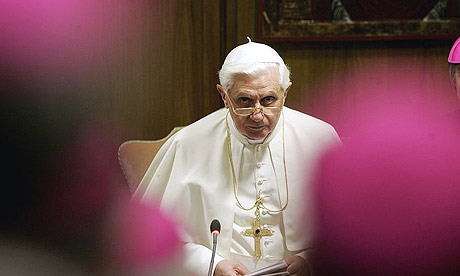
Like all of The Archers's ventures, Black Narcissus (1947) is a beautiful, fascinating film. This Powell and Pressburger effort has its faults - like all of their work, it's a bit slack in the narrative department - but it's a gobsmacking technical achievement with a genuinely disturbing and absorbing atmosphere.
An order of Anglican Nuns in Calcutta is summoned by The General (Esmond Knight), a toadying Maharajah, to establish a monestary at the Palace of Mopu, a former seraglio for the imperial harem, hoping to educate and treat his subjects. Headstrong Sister Clodagh (Deborah Kerr), hoping to escape an unhappy past in Ireland, heads the St. Faith mission, proving in over their heads with inadequate supplies and equipment, and a large, indifferent native population. The remote, alien location brings: the handsome, impertinent colonial agent Dean (David Farrar) gains the Sisters's attentions, not the least Sister Ruth (Kathleen Byron), whose repressed longings slowly unhinge her.
Coming the year of Indian independence, Black Narcissus has some rather pointed things to say about imperialism. There are no overt atrocities but the supposed "schools and roads" benefits of colonialism are laid bare as rank hypocrisy. The Anglican "civilizing mission" is in bad faith; their benevolent posturing is belied by their condescending words and contempt for native culture: on their first day in the school, Sister Clodagh drowns out a native horn with the church bells. The villagers have to be bribed by the General to take advantage of St. Faith's services, and an ancient holy man retains an endless vigil just over the hill, an unyielding symbol of paganism. A modern viewer may sniff at the condescending portrayal of the Indians, but they are a foil to arrogant colonizers with no respect for their subjects.
On a more profound level, though, Black Narcissus focuses on individual torment. It resembles a psychological horror film, with Mopu poisoning the sisters physically (poisoned water causes skin disease) and mentally. The palace's sensual drawings presage A Passage to India's erotic statues and lemur-painted protestors: ethereal native society resisting stuffy cultural imperialism. The General's nephew (Sabu) engages in a forbidden romance with a lower-caste slave girl (Jean Simmons), a counterpoint to the celibate Englishwomen. Vivid yet elliptical flashbacks haunt Sister Clodagh, causing her sins - unbending pride and arrogance - to overcome her good intentions. Of course, her reaction is nothing compared to Ruth, who completely unspools when forced to confront her repressed sexuality.
Like all Powell and Pressburger films, though, Black Narcissus's primary interest is visual. There's Jack Cardiff's always-striking Technicolor photography, Brian Easdale's eerie score and Alfred Junge's dreamlike, confectionary interiors to savor, but this film is absolutely astonishing in its depiction of the remote mission. The movie was shot entirely in Pinewood Studios (with a few exteriors in West Sussex), with skillful use of miniatures and matte paintings representing the remote Himalayas, the forbidding, mist-swept mountains and lush countryside; only a few lingering close-ups bely its artificiality. This is exponentially more impressive given the importance of the elements to the story: the atmosphere is eerie and absorbing, and the viewer has no doubt of its authenticity. When the narrative goes slack, there's no end of pretty pictures to take in, and they're coupled with a palpable feeling of dread and disturbance.
Deborah Kerr (The Life and Death of Colonel Blimp) excells: she plays Clodagh with the right mixture of pride, rectitude and hapless confusion. Kathleen Byron makes Ruth's mental breakdown appropriately harrowing, and David Farrar (Went the Day Well?) is cynically humorous. The romantic subplot with Sabu (The Thief of Baghdad) and a brownfaced (though still breathtaking), fresh off Great Expectations Jean Simmons doesn't amount to much.
Black Narcissus is another fine effort from Michael Powell and Emeric Pressburger. The plot moves in fits and starts, but the strength of characterization, atmosphere and striking set-pieces make an impressive, engrossing watch.




















